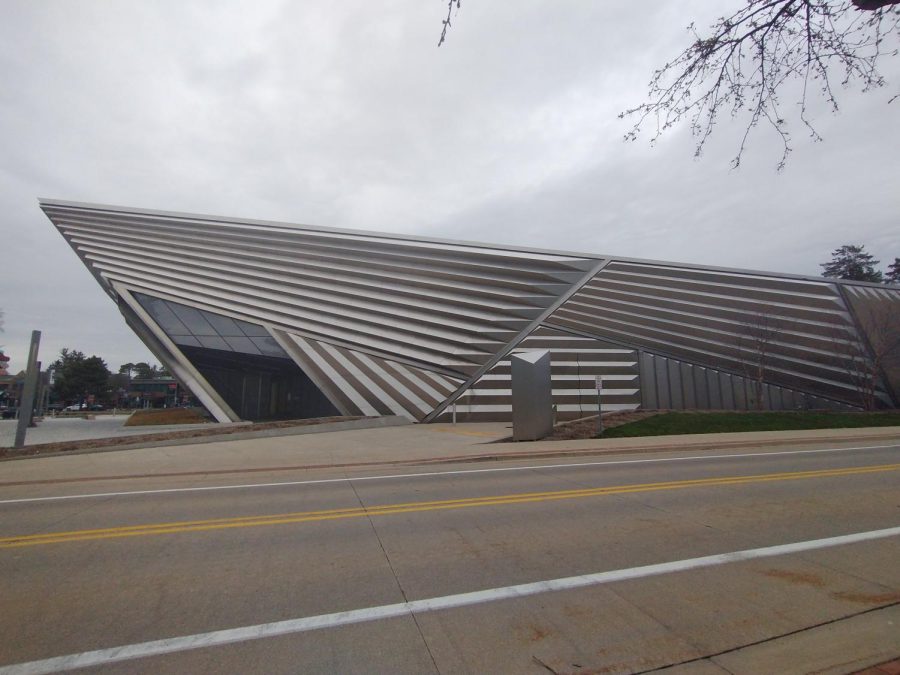The Future of Filmmaking in Michigan
April 29, 2022
Batman Vs. Superman, Real Steel, Red Dawn, and Transformers: The Last Knight. What do these movies have in common? They were all partially filmed in Michigan. From 2008 to 2015, the state of Michigan offered a tax credit to filmmakers. This brought film crews to Michigan, because tax breaks made movies cheaper to film. In return, the film crews would stimulate the local economy; they would pay for hotel rooms, food, props, and more, giving income to local businesses.
“Any time you have an industry like that… there are so many job opportunities for various departments on set and during the production process, especially in a place like Michigan,” Mr. Cook, Film Studies teacher at GLHS, said.
The incentive was discontinued in 2015 by former Michigan Governor Rick Snyder, but presently, a reformed version of the bill has been proposed. The new incentive would offer a tax credit of 25% and an additional five-percent for including a ‘filmed in Michigan’ logo at the end of a movie or show. Keen-eyed moviegoers may notice that often at the end of movie credits, a ‘filmed in Georgia’ logo will scroll across the screen. This is because Georgia offers heavy tax incentives, like the ones proposed in Michigan, so larger budget movies are often filmed in Georgia.
Previously, Michigan offered one of the most enticing incentives in the nation, offering a 42% rebate on production costs, meaning that the state would pay that money back to the studio. The new legislation proposes a different approach, instead offering a 25% tax credit. A tax credit is essentially a discount on paying taxes. Film studios, with this tax credit, would pay 25% less on taxes owed to the state. This encourages studios to film movies in Michigan in order to reduce production costs.
“One of the biggest aspects of making a film is you gotta make money, right? That’s most of the studio’s goal. They can’t do anything if they’re not making money, so that tax incentive is huge… You need that to optimize your profits.” Cook remarked.
Additionally, a perk of the incentive would be a potential increase in tourism. Tourism is one of Michigan’s biggest sources of revenue, and featuring the state on the big screen would most likely increase the tourism draw. For instance, a scene in Batman V. Superman highlights the beautiful Broad Art Museum in East Lansing. Several scenes in Red Dawn feature Grand Ledge’s beautiful Fitzgerald Park. These projects feature places that many people around the world never see.
“Michigan is beautiful. I mean, I would imagine that even if you’re not from the state of Michigan, if you see any images from some of the destination locations around the state, I would imagine… there’s an opportunity for a lot of different settings.” Cook said.
Without an incentive, Michigan loses out on similar opportunities. Don’t Look Up, a movie that partially takes place in Michigan, was not even filmed in the state. Despite the two main characters, a student and a professor, both coming from Michigan State University, with a few scenes even portraying the campus, the movie was actually filmed in Boston, Massachusetts. In one scene, Leonardo DiCaprio’s character can be seen standing on a street, looking up at the sky, and declaring “I’m in Lansing, Michigan,” over the phone, despite standing on a street that can be found nowhere in the city.
If this bill is passed however, Michigan will be back on the map, so to speak. Studios from all over the country will hypothetically be drawn to Michigan to film their movies. Soon, Michiganders may see the beautiful scenery of the state that they call home, projected on movie screens all over the world.
“Y’know, if people are watching a movie or a TV show… and they look into where it was filmed…I think it would end up in the long run promoting more tourism.” Cook stated.
One more upside to the proposed legislation is the opportunity for local talent to stay local. Most people who want to get into the film industry have most likely thought about making the big move to Los Angeles, California. After all, that’s where the industry lives. William Goldman, most well known as the author and screenwriter behind both the book and film adaptation of The Princess Bride, wrote the following in his autobiographical guide to making movies, Adventures in the Screen Trade.
“Simply put, they know things out there the rest of the country doesn’t, and they get that information first. The movie business is a part of the fabric of life in Los Angeles, and that just isn’t true anywhere else.” (Goldman, 80)
The book was published in 1983, far before most states in the U.S. had begun offering monetary incentives for filmmakers. What Goldman posits is still mostly true; Los Angeles is where the entertainment industry thrives. But it’s not the only place anymore. With these incentives, states like New York, Illinois, and Texas have a stake in the game. Soon, Michigan could join them. Opportunities for filmmakers would more often arise, meaning that Michigan natives who aspire to get into the film industry don’t necessarily have to move all the way out to California. Instead, the film industry could be moving to them.
“To have some sort of an opportunity here in our home state, where we have film schools… If they’re here in our own backyard, I think it would make it a lot more accessible. It’s not like there aren’t students and young people who are trying to get involved with that industry… The problem is, they all leave the state” Cook said.
A downside of the proposed bill would be fewer taxes paid, but the trade-off of more money flowing into the Michigan economy, combined with the increased tourism draw and increased opportunities for local talent, seems to outweigh the loss of tax revenue. Without the tax incentive, most studios choose to film in other states, meaning that Michigan, in most cases, misses out on tax revenue from these projects regardless. If anything, this bill could very well bring more taxes to the state by increasing the likelihood of a studio deciding to film their movie in Michigan.
“If this brings more jobs here and incentive to y’know, bring those film productions here, I don’t think there’s a whole lot of immediate negatives I can think of,” Cook stated.
The tax incentive proposed is currently in the legislation phase. If passed into law, the state could potentially see an increase in taxes, more money flowing through the local economy thanks to the various expenses of making a movie, an increase in tourism, and more opportunities for local filmmakers to stay local. With this new bill, the film industry could make a return to Michigan. With this new bill, Leonardo DiCaprio could very well stand on a street and look up at the sky in the real Lansing, Michigan.


